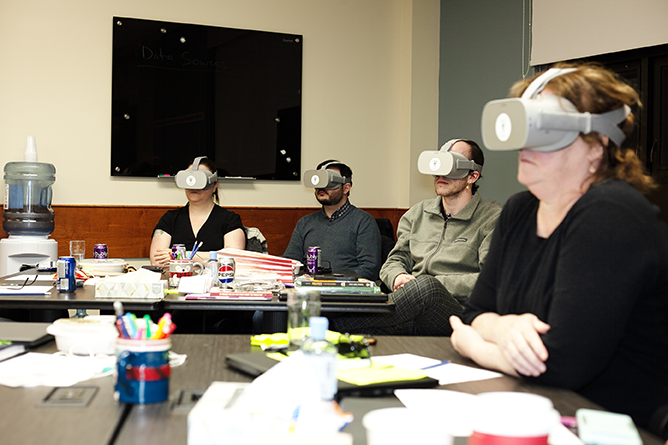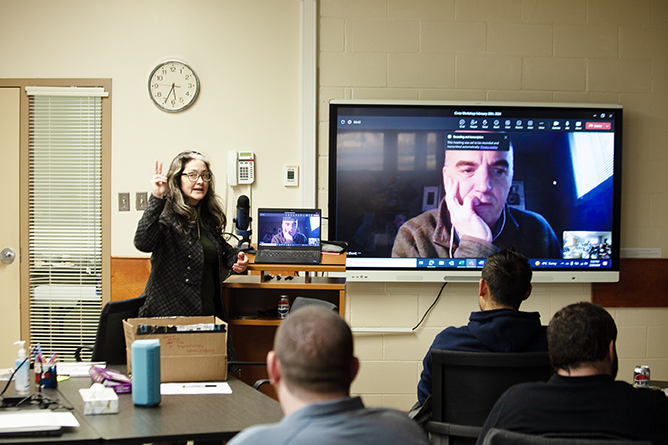
After nearly three years of planning, followed by a school year to pilot the material, the province’s new mandatory civics curriculum is in effect throughout Anglophone School District West (ASD-W).
To familiarize teachers with all the ways they can wow students while driving home the importance of civics education, the Social Studies, Fine Arts, and Enrichment team held four workshops throughout the district between Feb. 13 and 21.
Workshops took place in Woodstock on Feb. 13, Grand Falls on Feb. 15, Fredericton on Feb. 20, and Oromocto on Feb. 21. Each workshop featured a guest speaker and activities designed to engage teachers so that they may engage students in learning civics.
The virtual reality tour of Parliament was a big hit.
“Any ways we can find to make this fun and engaging for kids, we need to share with one another,” said ASD-W Subject Coordinator for Social Studies, Fine Arts, and Enrichment Beth Christie.
The virtual reality goggles were one of the resources teachers were introduced to that engage students in learning civics. Christie and the guest speakers also recommended books and various online resources teachers can access to teach civics.
Canadian Broadcasting Corporation (CBC) provincial affairs reporter Jacques Poitras, who spoke in Fredericton on Feb. 20, told the teachers, “Everyone I’ve told about what you’re doing is incredibly excited and happy about it… [Civics education] is an idea that’s long overdue and I see it as a real positive contribution to society as a whole.”
Addressing concerns
Poitras spoke about the need for civics education in society, citing a growing lack of civics knowledge amongst the public that he has noticed. He said that he reduced the number of Tweets he wrote because, “I was actually making it easier for people to not read the story. So, they would assume that four or five Tweets were everything they needed to know.”
“That’s the challenge,” he said. “We have habituated people to quick easy content, to vibes. And we have habituated them to not worry so much about facts… about how things work and why they work the way they do. And I think it is damaging the public debate.”
Poitras said the trend he sees that concerns him most “is a deepened mistrust of institutions and about process. People are less comfortable with debate. They’re less comfortable being confronted with ideas that they disagree with. They’re less comfortable dealing with people that they find offensive or wrong or outright crazy. But that is part of life.”
Other guest speakers expressed similar concerns.
“It is exciting that the new civics program will provide students the tools to navigate and contribute in their communities. Students will be better informed not only when voting but also understanding a basic principle of citizenship of how to influence change between election cycles.”
Lyle Skinner
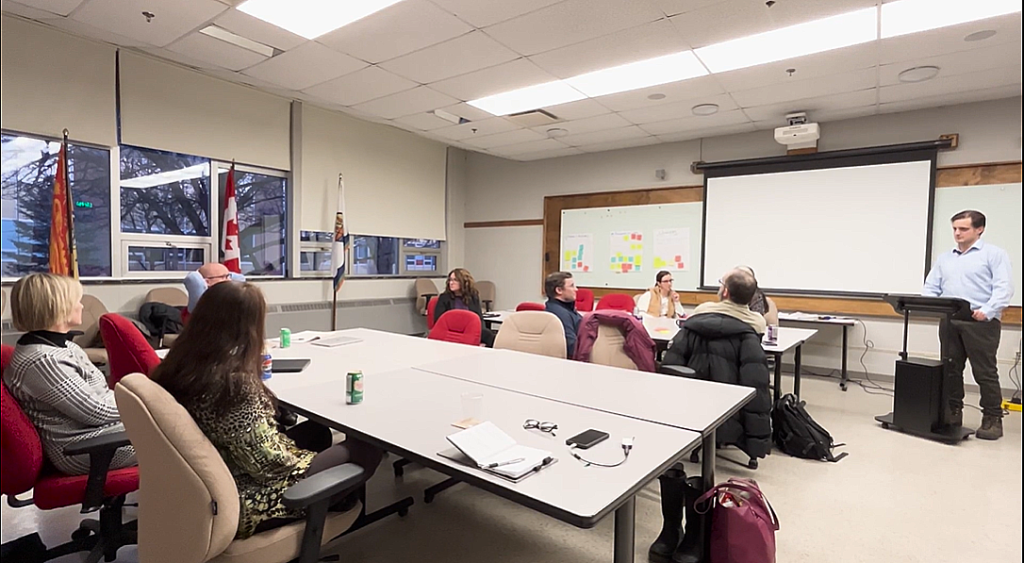
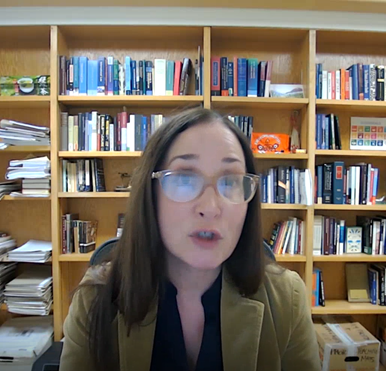
“It’s my impression that generally civics education is, I wouldn’t say, neglected, but it could be strengthened, and it looks to me like you’re going to be at the forefront of a process of doing that,” said Saint Thomas University Professor Shannonbrooke Murphy. Murphy spoke to teachers in Woodstock on Feb 13.
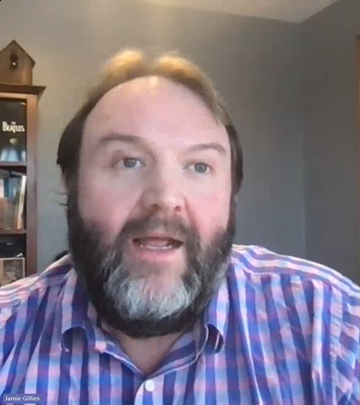
And according to Saint Thomas University Communications and Public Policy Program Coordinator Jamie Gillies, “Misinformation spreads so rapidly today that teachers and legitimate media sources presenting facts cannot keep pace.”
“I think one of the things that might be addressed in the civics curriculum is how students can become good, active observers of politics, government, and media,” said Gillies, who spoke to teachers in Grand Falls on Feb. 15.
Those concerns drove the current provincial government in 2020 to begin the process of overhauling civics education in New Brunswick.
Update civics classes, engaging students in discussions about how to participate in their democracy and contribute to their communities.
PC Party Platform Commitment GC-20-63
According to Kate Charette, Learning Specialist with the Department of Education and Early Childhood Development. “What we were seeing is that learners weren’t able to have civil discourse in class or on online platforms; were not able to recognize familiar historical events and places; were not able to articulate how their local government works. Pieces like that are being reported by larger civics education research bodies.”
In Spring 2021, a group of social studies educators from anglophone school districts around the province, called the Curriculum Development Advisory Committee (CDAC) reviewed the new curriculum. Working with UNB Citizenship Education researcher Dr. Alan Sears, the Department of Education gathered data and conducted research enabling the Civics pilot to be rolled out to 18 anglophone high schools around the province during the 2022-2023 school year.
The ASD-W pilot schools were Chipman Forest Avenue School, Hartland Community School, McAdam High School, and Oromocto High School. The new civics curriculum was implemented in all the province’s anglophone school districts this school year.
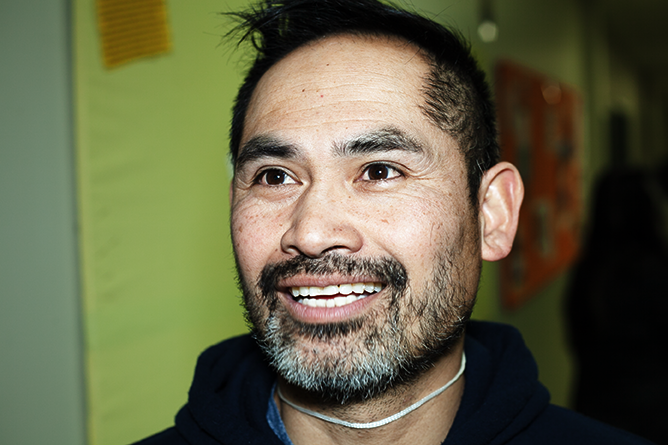
Teachers at the workshops expressed optimism that renewed emphasis on civics education will produce more informed citizens.
“I hope they’ll be better citizens, citizens of the world, not just Canada,” said Leo Hayes High School Teacher Wichian Neng Makhot, “and also better citizens in their communities like Fredericton and Leo Hayes.”
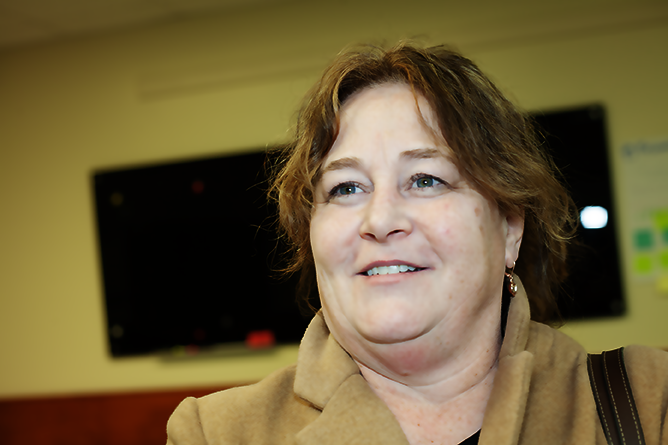
Lori Thompson, a Grade 7 English Prime Teacher at Bliss-Carman Middle School expressed similar sentiments: “I hope that they start to wonder about the wider world around them and why things happen and for what reasons, and how they can have an impact on the world themselves and maybe their own communities.”
“I would like to think that what you are doing will have an effect,” Poitras told teachers. “Because there will be a bunch of kids out there who [will] at least get the basics of how to behave civilly when you’re debating something or how the legislature works.”

